Take on the role of master architects as you build an ancient Mediterranean city in Akropolis, published by Gigamic Games and Hachette Boardgames. This tile placement, city building game wowed us when we saw it at Origins Game Fair. There’s a simplicity to the gameplay that makes Akropolis easy to understand. The challenge comes in optimizing your city and earning points in the right areas.
The Building Blocks of Civilization
Three hexagon pieces make up each tile in Akropolis. On your turn simply draft a tile from the line up and place it into your city. The first tile in the line up is always free. If players want the second or third tile in the line, you’ll have to spend stone resources in order to draft the tiles that are further down the line.
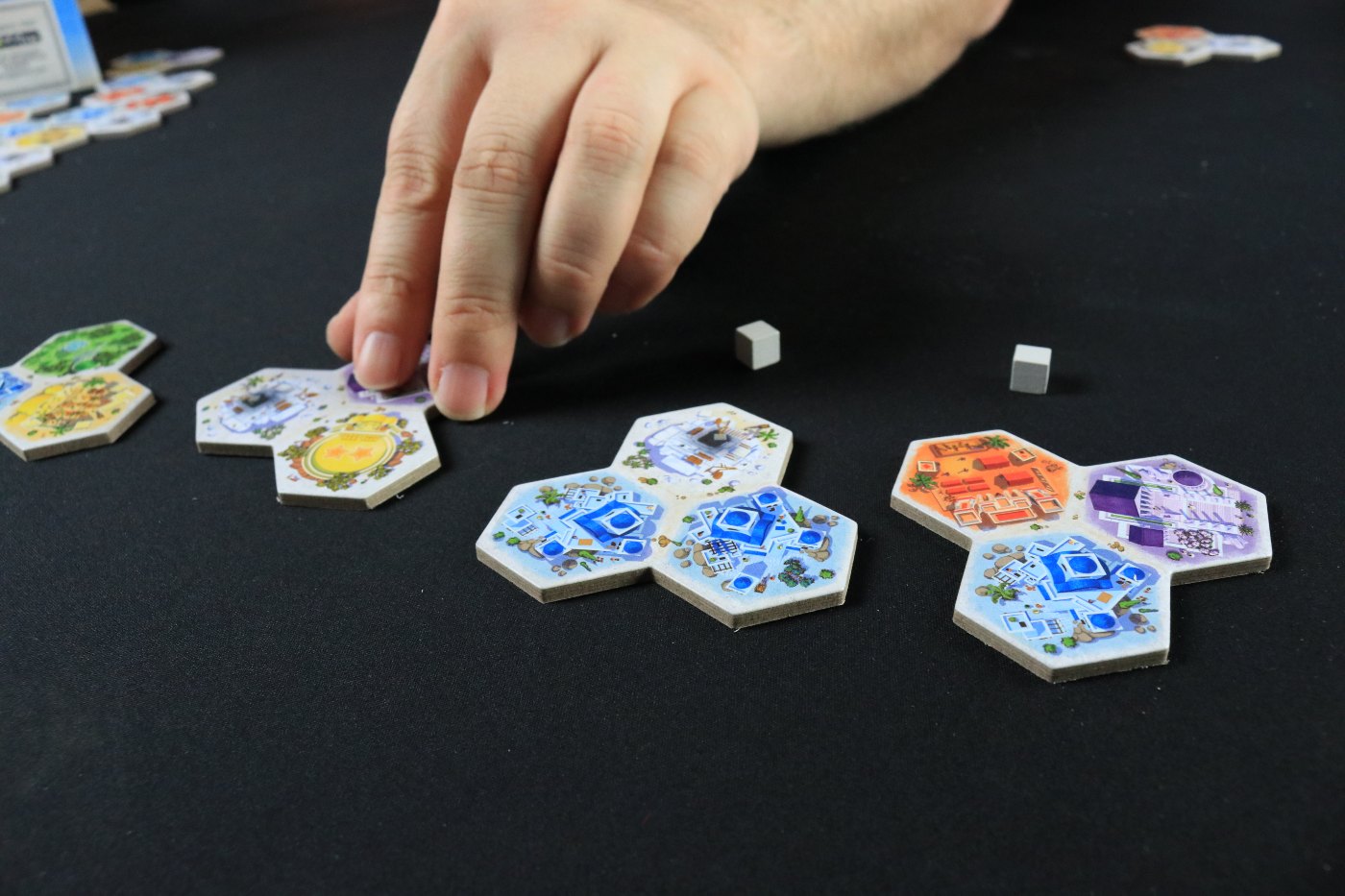
Each district type is color coded and has a unique scoring criteria.
Residential districts are blue and they want to be connected together. You’ll only score the largest connected grouping of these blue districts.
Markets are yellow and they aren’t fans of competition. Place markets at least a tile away from one another in order to score these. If two market districts are sitting next to one another, they will not be scored.
Barracks are red and should be placed at the edges of the city in order to protect the citizens. Red districts only count if they have an open edge facing outside the city.
Temples are purple and want to be where the people are. Purple districts are counted if each side of the district is surrounded by another tile.
Gardens are green and can be placed anywhere in the city. These tiles are the least plentiful in the game but can give you loads of points if they are collected correctly.
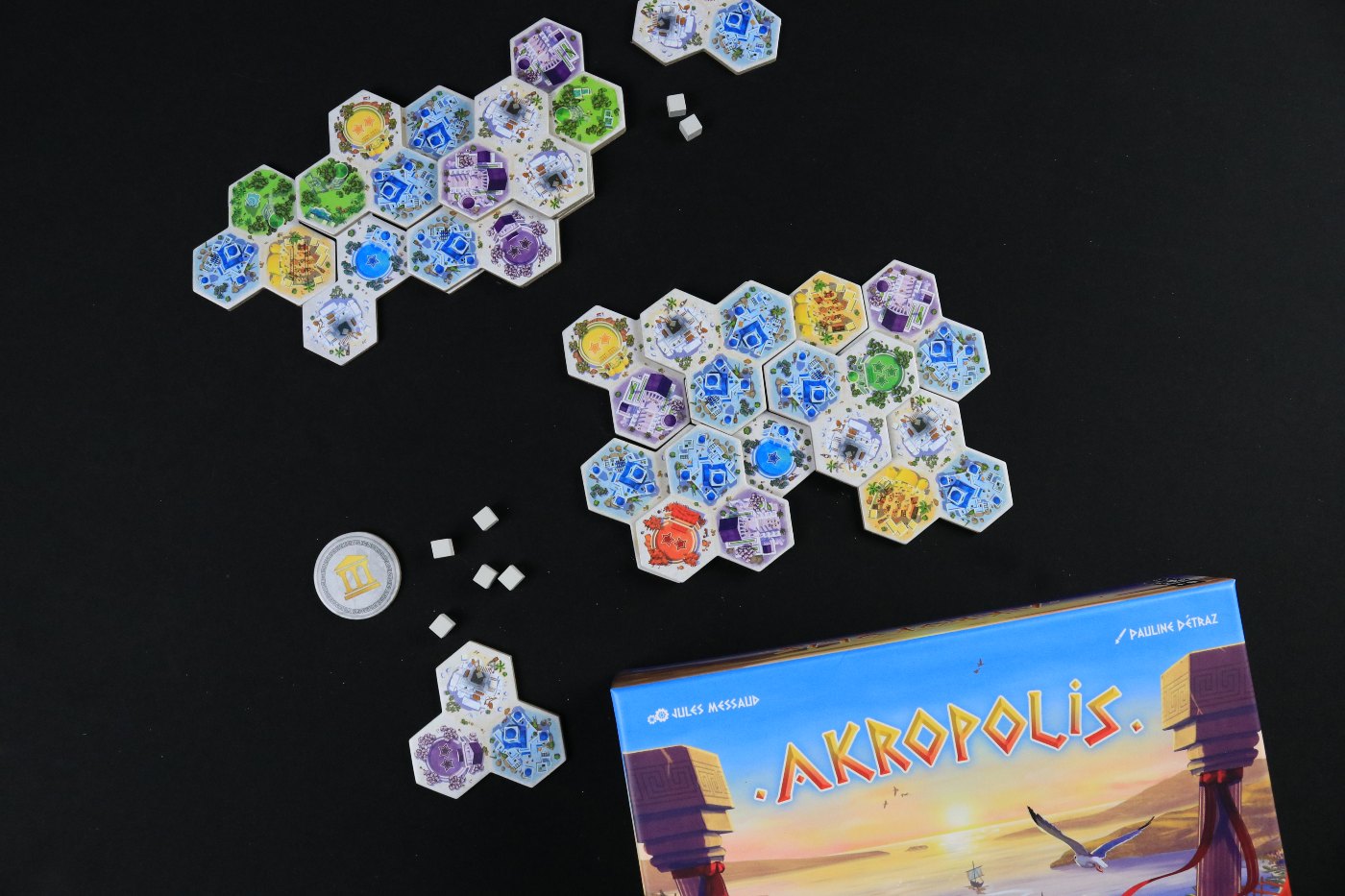
The most common color in the game is the gray quarry tiles. These have no point value but give you stone resources for each quarry you cover up. As you plan out your city, be sure to think vertically as you build because stacking tiles allows you to earn more points than just building on a single level.
When scoring tiles at the end of the game, districts on level 1 are worth 1 point while districts on level 2 are worth 2 points and level 3 are worth 3 points. This is the way to optimize your points and earn the most from your tiles.
Multiplicity
Colored tiles are classified in two ways. First are “districts” which can only be scored using the rules above. The tiles that have stars on them are called “plazas”. These hexagons don’t have to abide by the scoring rules above but are used to multiply the districts in your city. Having plazas in your city are the only way that you can score the different districts that you collect in Akropolis.
Residential districts show up often and the plazas for these buildings have a 1-star multiplier. The garden districts are more rare but these plazas have a 3-star multiplier which can lead to big points.
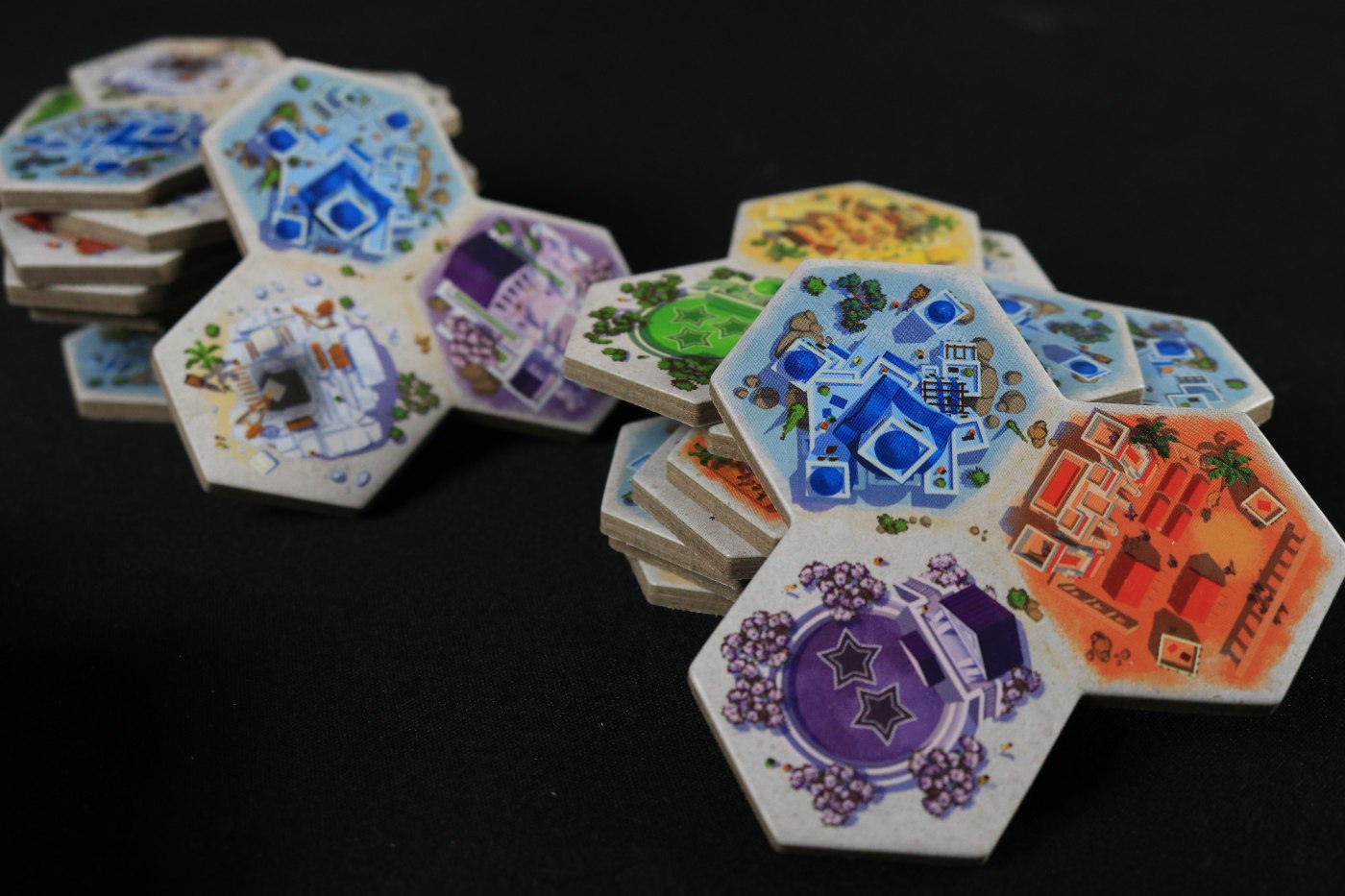
Since players can build vertically, it’s important not to cover up these plazas since they’re the bread and butter of scoring points for your city. While everyone is mostly building their own city at the table, players have to be aware of the tiles that their opponents are taking. In my third game of Akropolis, I left Erin completely unchecked while she collected almost all the barracks tiles that came out. I lost my mind when she scored over 70 points on a single tile type when filling out the score sheet.
Master Architect
Akropolis is a very special game. The game is simple and executes so well in every area. It takes about 3 minutes to teach this game and give examples of how to score the different district types. Every game feels like a challenge as you spend stone on just the right tile and find yourself settling for scraps when you’ve spent all your stone resources.
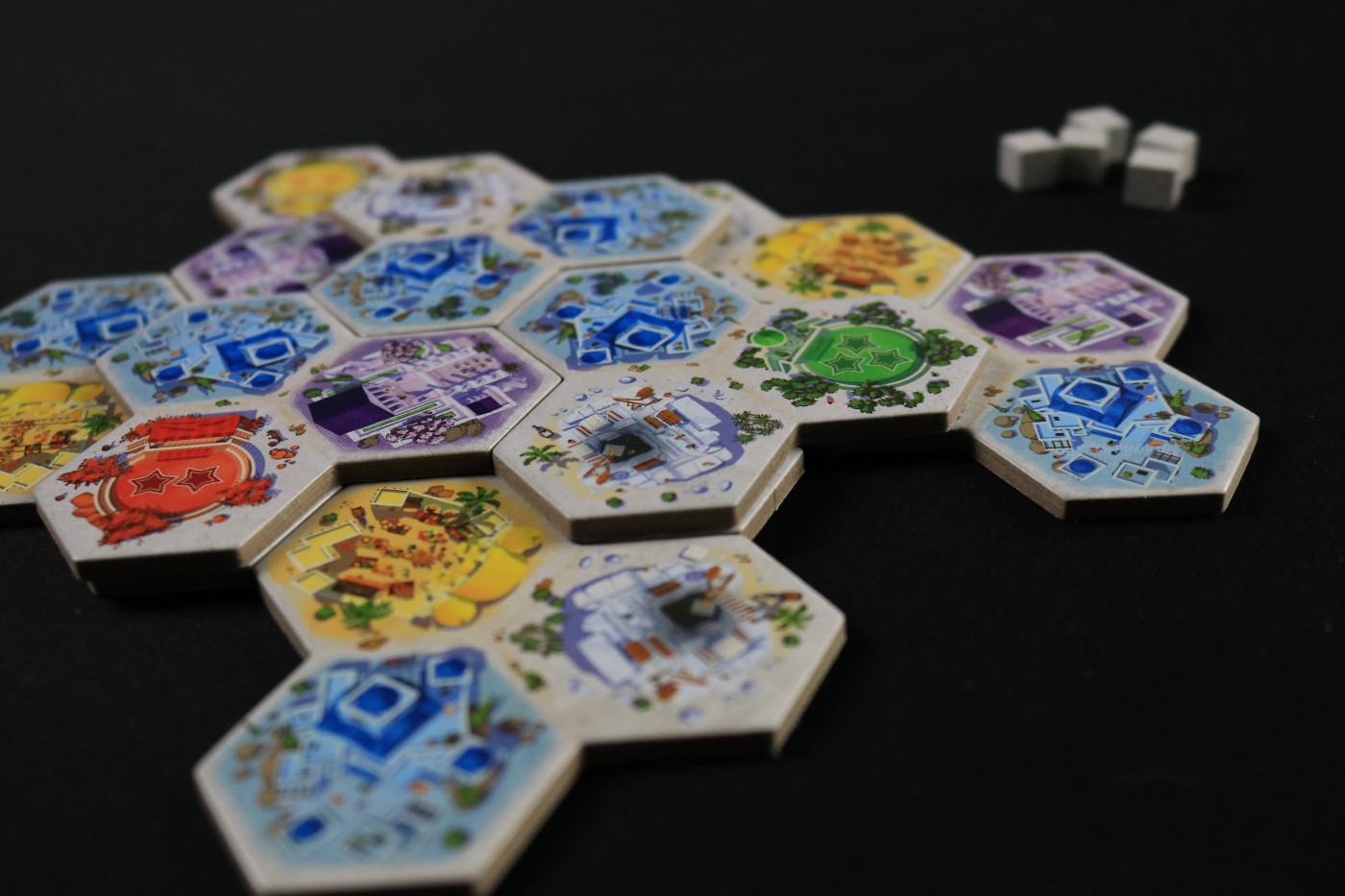
Toward the end of every game, there’s a tension as you do the math to figure out how many points you’re gaining when covering up other tiles. The distribution of tiles in a 2, 3 and 4 player game feels so good and games feel really competitive when you get the hang of building on multiple levels.
There’s a simplicity to the gameplay and this feeling of trying to master building the perfect city. Each game is unique since the tiles never roll out in the same order. A single game of Akropolis lasts around 20 minutes. It’s one of those games that always gets a second play before putting the tiles back in the box.
This year at the UK Games Expo, Akropolis was awarded the “2022 Best Family Game”. We absolutely see why this game was given that honor and would be shocked if this game didn’t finish out this year with a number of other awards. Akropolis is an abstract game that has a great theme and is so accessible for gamers and non-gamers alike.
I don’t know that Akropolis does anything new or revolutionary. The truth is that it doesn’t have to. The gameplay is so smooth and there’s plenty of challenge to keep me coming back for more time after time. It’s even better that this is a game that kids (probably 8+) can sit down and enjoy with their parents.
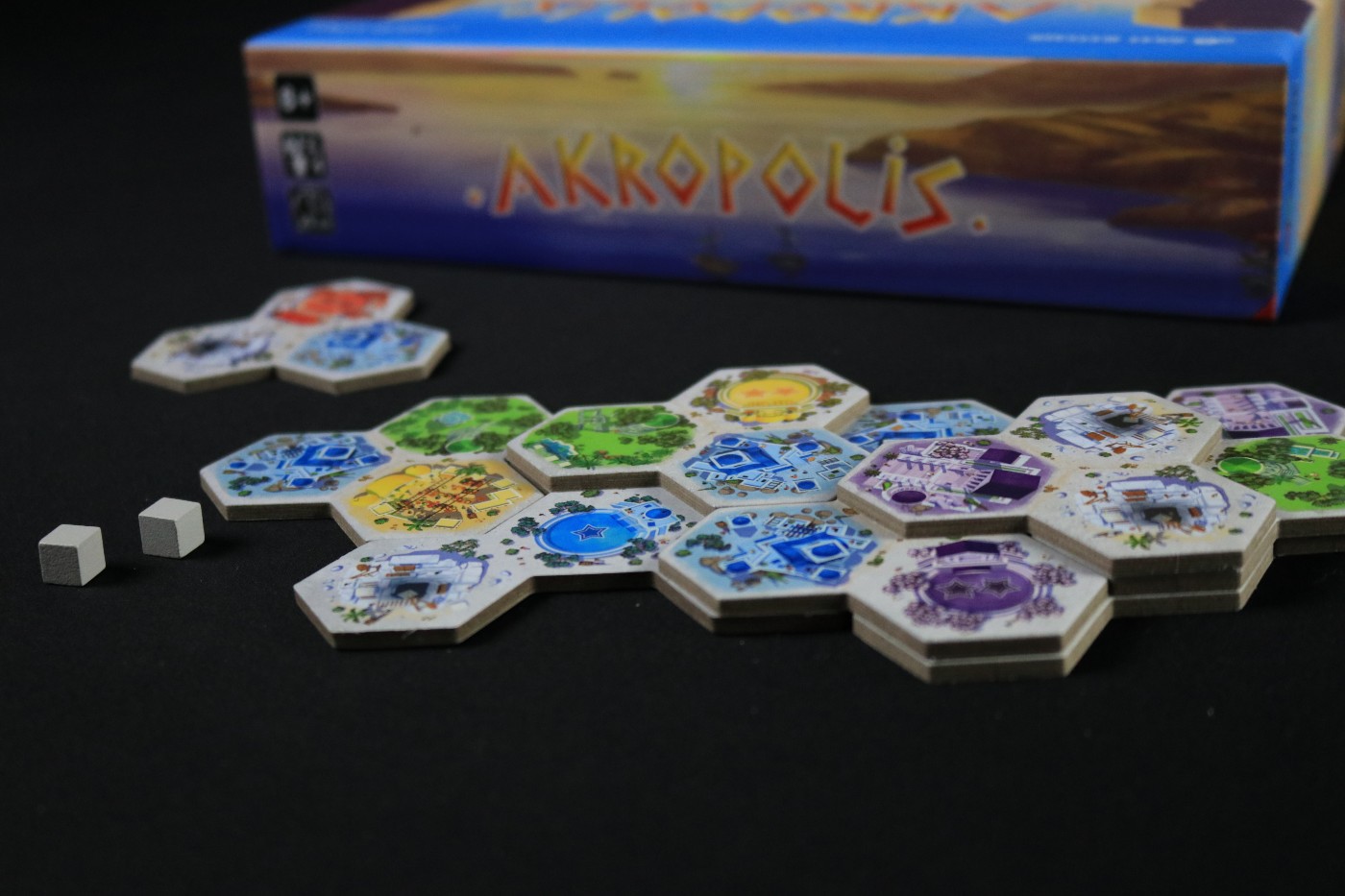
The bright colors and table presence will suck you in. The tiles are incredibly thick and durable which is good because we’re going to hit 20 plays of this game in just 3 weeks.
Akropolis has been an absolute hit for us and our friends so far. Hopefully this is a game that will find a home on your family game shelf once it hits retail in August.
Look for Akropolis at your local game store in August 2022. You can pre-order the game from the Hachette webstore or through Amazon today.
Highs
- No single strategy will lead to a win
- Quick gameplay leads to back-to-back plays
- Bright colors and excellent component quality
- Scales really well between 2 to 4 players
- Scoring variants means more replayability
Lows
- Not watching other players can lead to runaway victories
Complexity

Time Commitment

Replayability


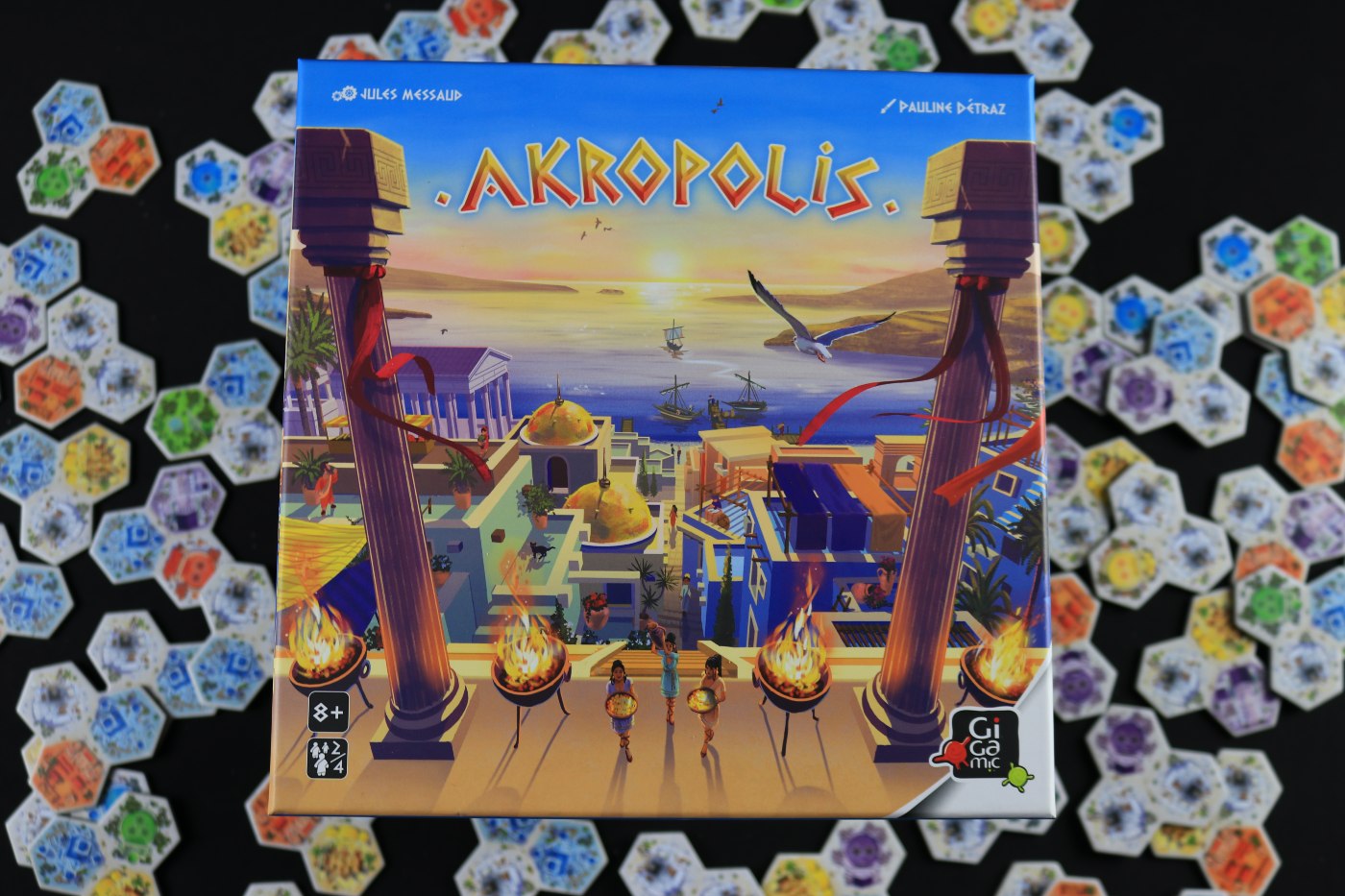

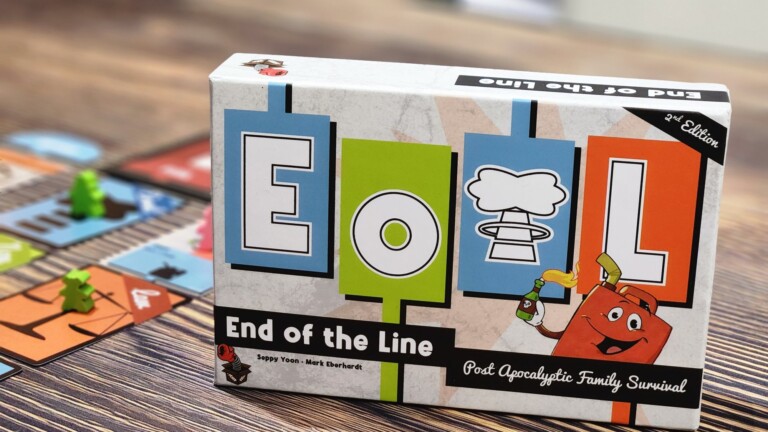
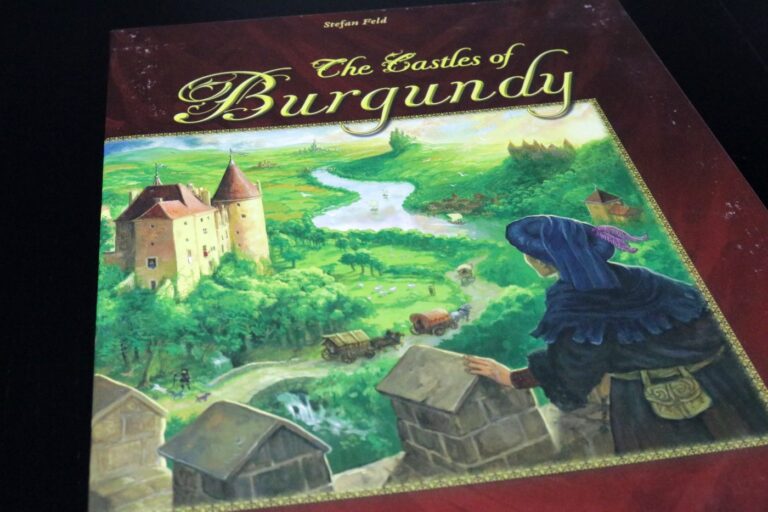
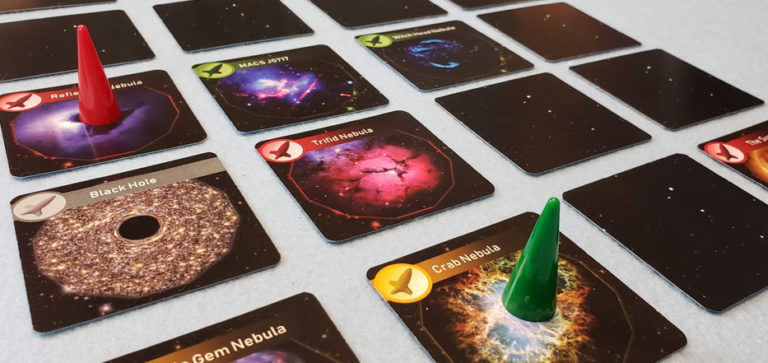
[…] someone else might need. The game shares similarities to other tile placement games like Cascadia, Akropolis and Calico. It’s worth noting that AQUA has caused some analysis paralysis (A.P) with players […]